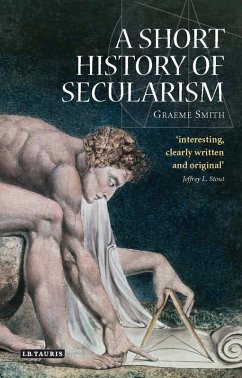What does it mean to call Western society 'secular'? What is 'secularism'? And how should we understand the concept of 'secularism' in international relations, particularly the clash between radical Islam and the West? The Latin term from which the word 'secular' is derived - 'saeculum' - means 'generation' or 'age', and came to mean that which belongs to this life, to the here and now, in this world. It is widely used as a shorthand for the ideology which shapes contemporary society without reference to the divine.However, according to Graeme Smith, 'secularism' represents a great deal more. He offers a radical reappraisal of the notion of secularism and its history, beginning with the Greeks and proceeding to modernity and the contemporary period. The assumption that the West is becoming increasingly secular is often unquestioned. By contrast, Dr Smith discerns a different kind of society: one informed by a historical legacy which makes sense only when it is appreciated that it is religious. Secularism was born of Christianity.
Daringly - and very originally - Smith argues that it is impossible to understand the idea of the secular without appreciating that, at root, it is Christian. "A Short History of Secularism" will fundamentally reshape discussions of western culture, religion and politics. It will have strong appeal to students of religion, political philosophy, and the history of ideas.
Daringly - and very originally - Smith argues that it is impossible to understand the idea of the secular without appreciating that, at root, it is Christian. "A Short History of Secularism" will fundamentally reshape discussions of western culture, religion and politics. It will have strong appeal to students of religion, political philosophy, and the history of ideas.









